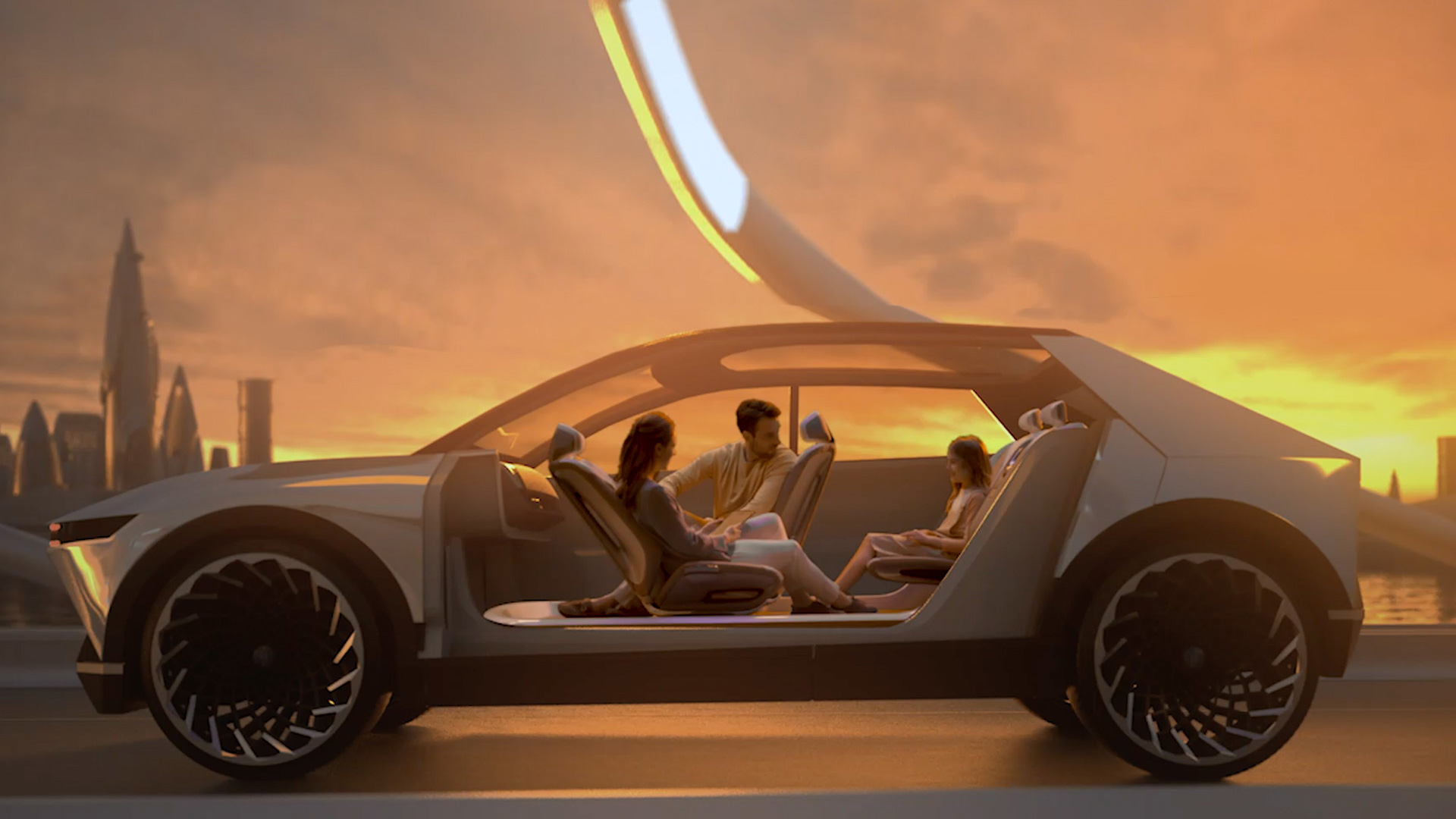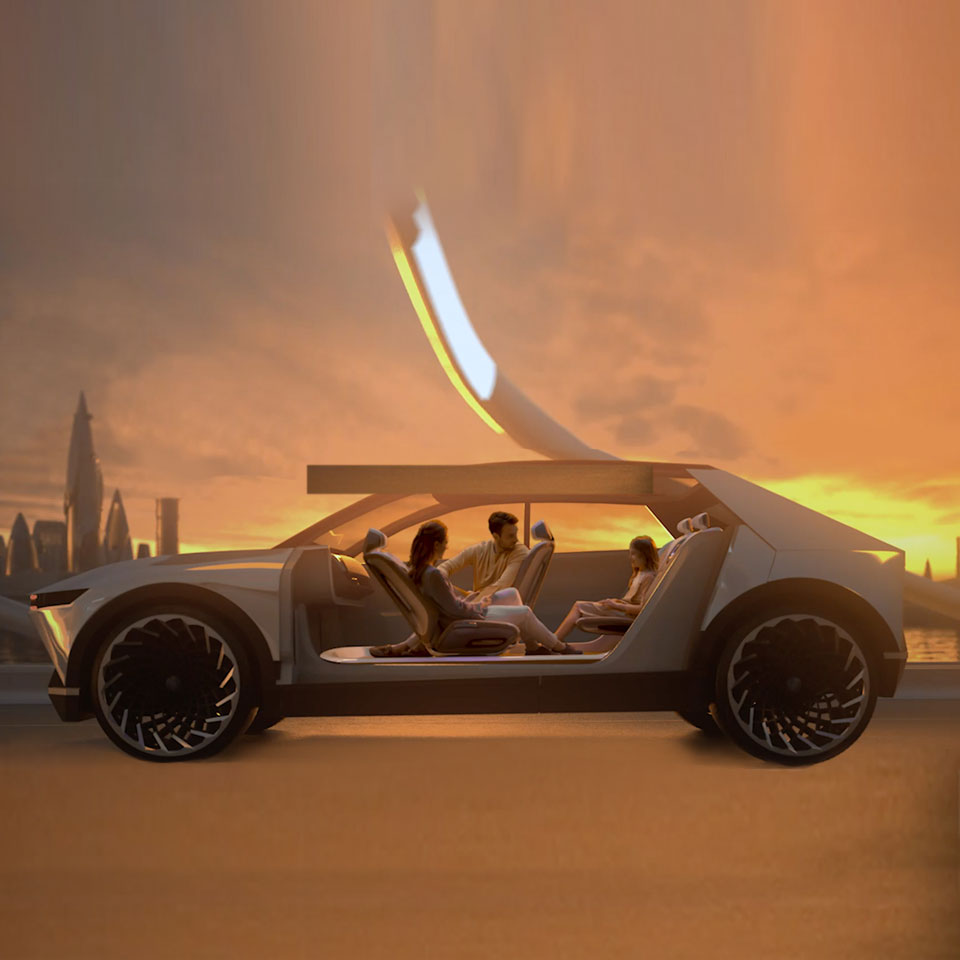



Warns if the preceding vehicle suddenly slows down or if the risk of collision with a vehicle, a pedestrian, or a cyclist is detected. Automatically assists with braking if the risk of collision increases after warning.
Warns if the preceding vehicle suddenly slows down or if the risk of collision with a vehicle, a pedestrian, or a cyclist is detected. Automatically assists with braking if the risk of collision increases after warning.
Warns if the left turn signal switch is activated at an intersection and the risk of collision with an oncoming vehicle from an adjacent lane is detected while turning left. Automatically assists with braking if the risk of collision increases after warning.
Warns if the preceding vehicle suddenly slows down or if the risk of collision with a vehicle, a pedestrian, or a cyclist is detected. Automatically assists with braking if the risk of collision increases after warning.
Warns if the left turn signal switch is activated at an intersection and the risk of collision with an oncoming vehicle from an adjacent lane is detected while turning left. Automatically assists with braking if the risk of collision increases after warning.
Warns if the risk of collision with an oncoming vehicle from either the left/right side while going straight at an intersection is detected. Automatically assists with braking if the risk of collision increases after warning.
Warns if the risk of collision with an oncoming vehicle from the opposite side of the driving path is detected. Automatically assists with braking if the risk of collision increases after warning.
Warns if the risk of collision with an oncoming vehicle while changing lanes is detected. Automatically assists steering if the risk of collision increases after warning.
Warns if the risk of collision with a preceding vehicle in the next lane while changing lanes is detected. Automatically assists steering if the risk of collision increases after warning.
Automatically assists steering if the risk of collision with vehicles in the blind-spot while changing lanes is detected.
Warns if a lane departure is detected without a turn signal switch on. Automatically assists steering to prevent the vehicle from departing the lane only if lane departure is detected without a turn signal switch on.
Automatically assists braking if the risk of collision with vehicles in the blind-spot while changing lanes is detected.
Automatically assists braking if the risk of collision with vehicles in the blind-spot is detected while driving forward to exit parallel parking spot.
Automatically warns if the risk of collision with vehicles in the blind-spot when an occupant opens the door to get out of the vehicle after stopping is detected.
Keeps door locked and warns if the risk of collision with a vehicle in or approaching the blind-spot is detected when the car is stopped and the electronic child lock button is pressed to allow rear passengers to get out.
Warns if driving over the speed limit of the road using the information of the front view camera or navigation. The driver can change the set speed according to the speed limit by using the +/- switch on the steering wheel during MSLA or SCC operation.
DAW analyzes the driver’s attention level and provides a warning while driving. The driver’s attention level is displayed in 5 scaled levels. When the level of attention becomes lower than “Low” (level 1), a break is recommended. Provides an alert to the driver when the leading vehicle departs during a stop.
When the turn signal switch is operated, the rear-side image of the corresponding direction is displayed in the cluster.
Recognizes the ambient light and illuminance, such as the lamp of an opposite vehicle or preceding vehicle, and automatically turns the high beam On/Off.
SCC helps maintain distance from the vehicle ahead and drive at a speed set by the driver while driving.
The distance range can be selected in steps 1 to 4. The car drives automatically at the set speed while maintaining the distance from the vehicle ahead.
SCC helps maintain distance from the vehicle ahead and drive at a speed set by the driver, and includes stopping and restarting while driving. The vehicle distance range can be selected in steps 1 to 4.
Automatically maintains the distance from the vehicle ahead and the set speed while driving. Automatic restart is performed when restarting within 3 seconds after the front vehicle stopping. To start after 3 seconds, the driver’s pedal or switch input is required.
SCC helps maintain distance from the vehicle ahead and drive at a speed set by the driver by reflecting the learned driving style of the driver. When SCC is inactive (Off/Standby), the feature learns the driver’s driving style. When SCC is activated, the feature stops learning and drives automatically by reflecting the learned driving style.
NSCC helps drive at a safe speed while driving on highways/motorways main section. In a safe speed zone, the speed is automatically reduced appropriately before entering the zone. After leaving the zone, the speed is returned to the original setting. If the driver sets the set speed to the current speed limit on the highway/motorway with the feature in operation, the set speed is changed automatically whenever the speed limit changes.
NSCC helps drive at a safe speed in the curved section when driving on highway/motorway main section.
Before entering the curve of the main section, the speed is automatically reduced. After leaving the curve, the speed is automatically returned to the original setting.
NSCC is a Driving Convenience feature that helps drive at a safe speed on the entrance and exit ramps while driving on highway/motorway. The speed is automatically reduced before the ramp section when driving in the furthest right lane on the main road. On curved ramps of the entrance and exit, the speed is automatically reduced. After leaving the curve, the speed automatically returns to the previous setting.
LFA helps center the vehicle in the lane while driving. The front view camera recognizes lanes to help with steering. If the lane is not recognized, the feature recognizes the vehicle ahead and helps with steering for a certain period of time.
LFA helps center the vehicle in the lane while driving. The front view camera recognizes lanes to help with steering. If the lane is not recognized, the feature recognizes the vehicle ahead and helps with steering for a certain period of time.
Improves the control performance by changing the steering actuator control method to the steering angle control. HOD is applied to improve driver’s hand-on judgment performance.
※ HOD (Hands On Detection): Direct Hands-On detection sensor
HDA helps maintain a set distance and speed from the vehicle ahead while driving on a highway/motorway main section and helps center the vehicle in the lane. It includes vehicle to vehicle distance control and lane following control.
HDA 2 helps maintain a set distance and speed from the vehicle ahead and assists with lane changes while driving on a highway/motorway main section and helps center the vehicle in the lane while driving.
Controls distance to a vehicle cutting in at low speed from an adjacent lane. When approaching a nearby vehicle in the adjacent lane during lane following control, offset driving within the lane is applied to avoid risk. When driving above a certain speed, holding the steering wheel and engaging the turn signal switch in the desired direction of lane change automatically changes the lane.
HDP is a conditional automated driving feature that maintains distance from the vehicle ahead and keeps the vehicle in the lane while allowing Hands-Off for the driver on highway/motorway main section. In case of imminent collision-risk, it performs emergency maneuver. In case of feature failure or limit situation, the driver is asked to take over control. When the driver does not take control, it performs minimum risk maneuver.
RVM displays the rear view while driving and parking. Using the rear view camera, shows the rear view and parking guide lines. Shows rear top view for parking and trailer hooking. Provides rear wide view.
SVM displays the surrounding view while driving and parking. Synthesized images from 4 wide view cameras to show the surrounding view in various view modes. Provides the changeable 360˚ 3D view.
Provides the feature to transmit the vehicle surrounding view to the smartphone
Warns if the risk of collision with an oncoming vehicle from the left/right while reversing at low speeds is detected. Automatically assists with braking if the risk of collision increases after warning.
PDW provides warning to avoid collision with pedestrians and objects around the vehicle while parking or exiting. Warns the distance to pedestrians or objects close to the vehicle in 3 steps.
Warns if the risk of collision with pedestrians or objects around the vehicle is detected during parking and exiting. Automatically assists with emergency braking if the risk of collision increases after warning. Automatically turns on the Forward/Side/Rear Parking Distance Warning.
RSPA assists with remote parking or exiting from outside the vehicle. Using the ultrasonic sensor, searches for a parking space and automatically assists with steering, accelerating, decelerating and shifting. Automatic braking when an object is detected in vehicle’s path. Provides Smart Parking/Exit feature while the driver is in the vehicle. Provides Remote Parking, Remote Operation feature while the driver is out of the vehicle.
RSPA assists with remote parking or exiting from outside the vehicle. Using the Surround View Cameras and Ultrasonic Sensors, searches for a parking space and automatically assists with steering, accelerating, decelerating and shifting. Automatic braking when an object is detected in vehicle’s path. Provides Smart Parking/Exit feature while the driver is in the vehicle. Provides Remote Parking, Remote Operation feature while the driver is out of the vehicle. Add parking assistance environment. (Parking line recognition-based perpendicular parking, parallel parking and diagonal parking modes.) Image recognition-based simplified parking/exit path, improved parking completion performance and avoidance steering performance.
RPP provides remote parking or exiting from outside the vehicle. Using the Surround View Cameras, Radar, Lidar and Ultrasonic sensors, monitors driving circumstances, parking environments, and hazards within vehicle sensors. Creates a driving path between the RPP zone and the parking space location based on parking lot HDM(High-definition Map), then drives autonomously through the parking lot. Operates when the driver uses a remote control device from outside the vehicle that is parked at an RPP zone. Provides vehicle status via a remote control device when feature is in operation.